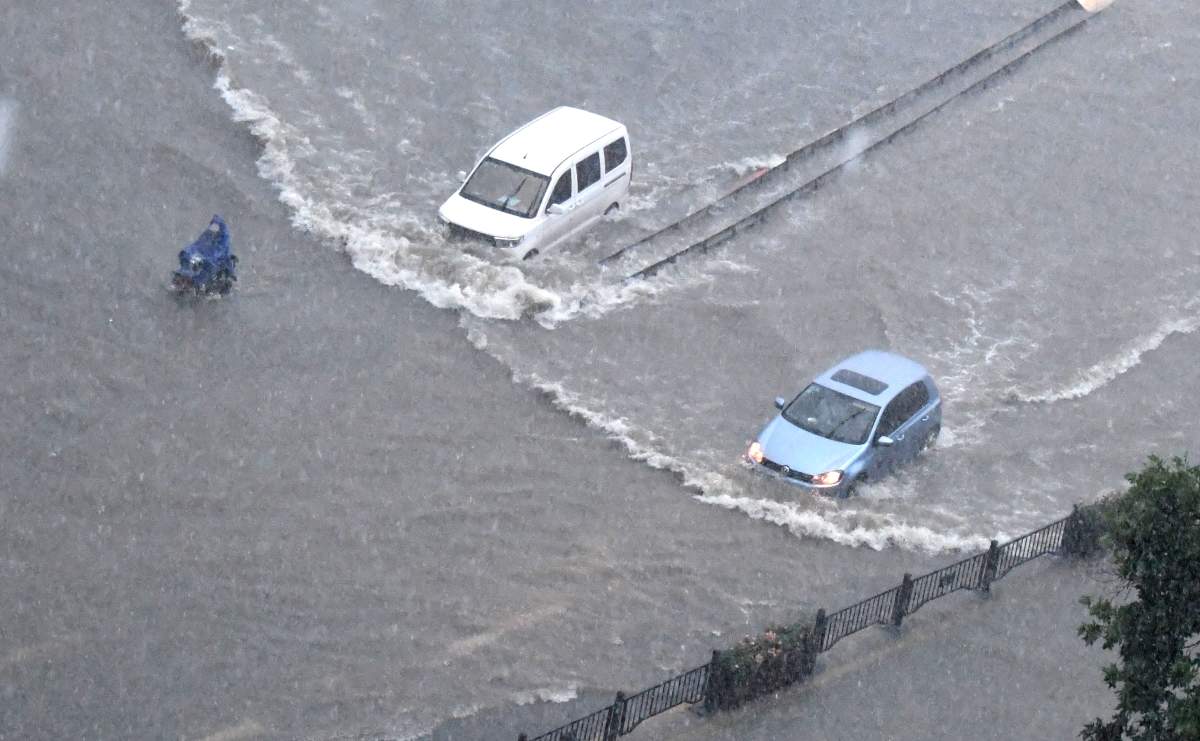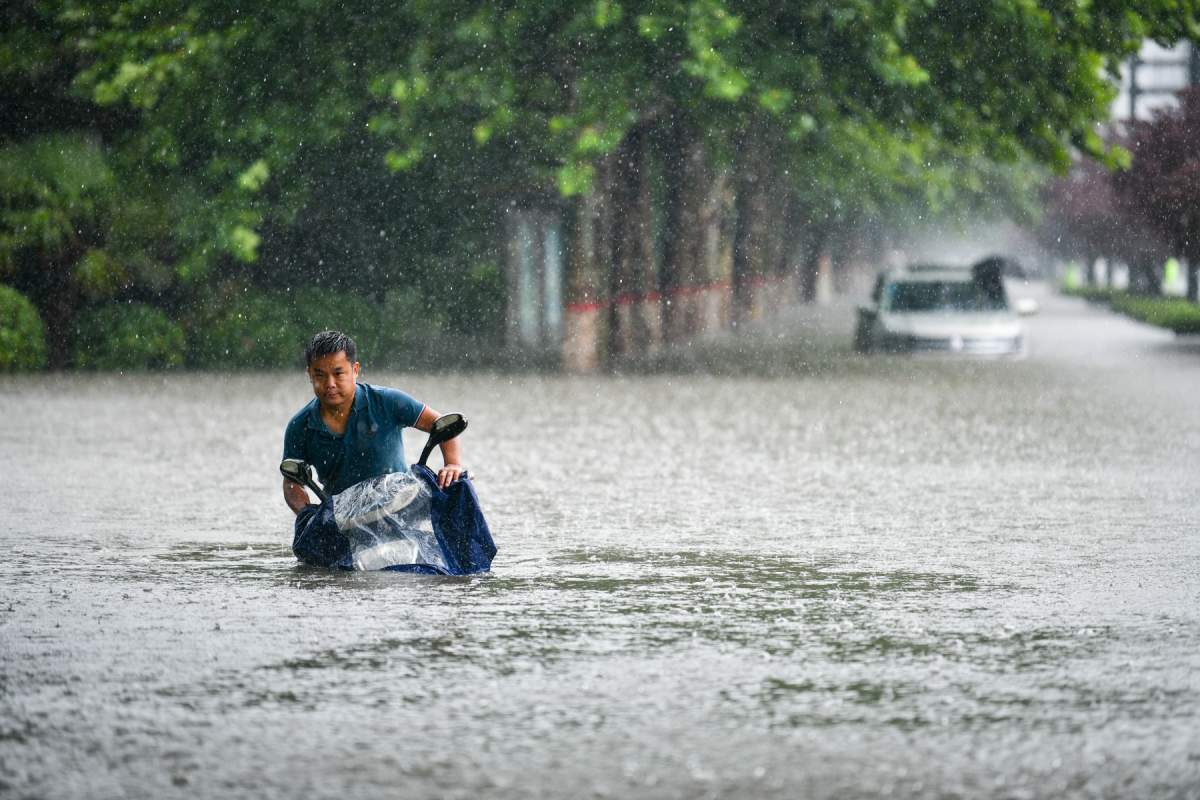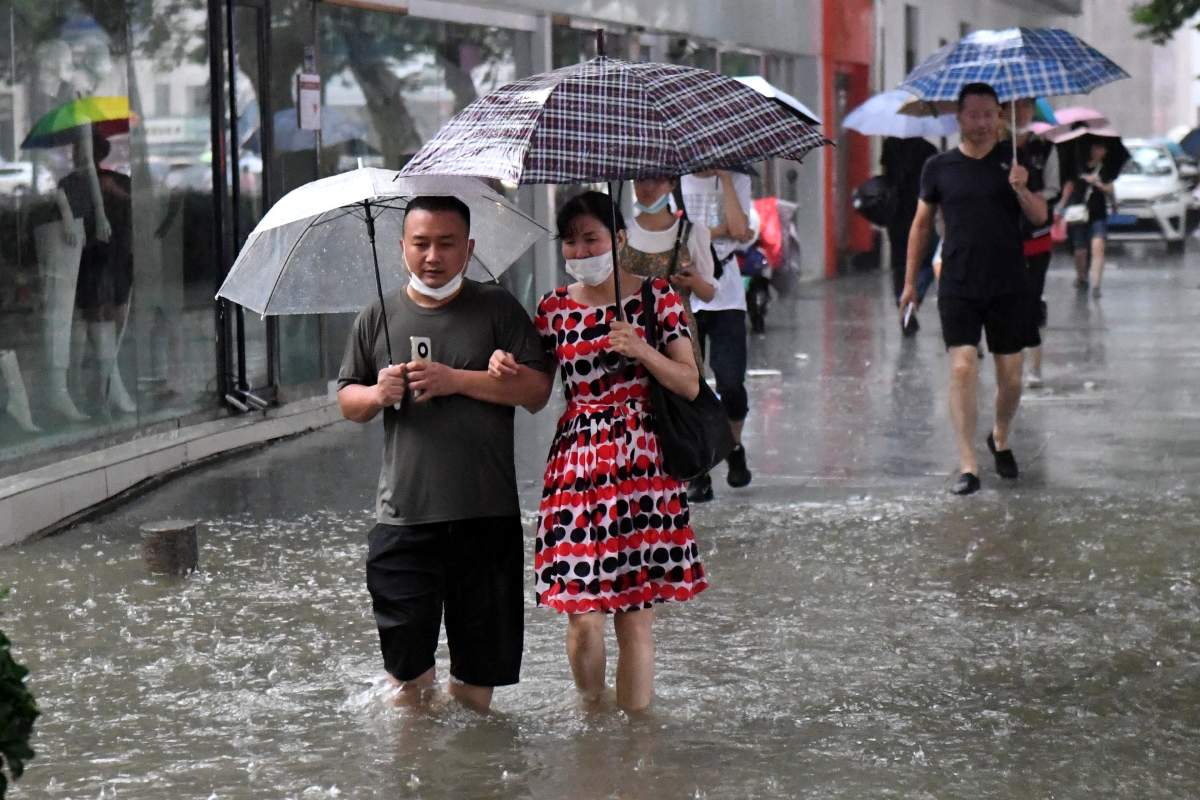Large swathes of China’s central Henan province were under water on Wednesday, with at least a dozen people dead in its capital Zhengzhou after the city was drenched by what weather watchers said was the heaviest rain in 1,000 years.

With more rain forecast across Henan for the next three days, the government of Zhengzhou, a city of over 12 million on the banks of the Yellow River, said 12 people were reported to have died in a flooded subway line, while more than 500 were pulled to safety.
Video on social media on Tuesday showed commuters chest-deep in murky floodwaters on a train in the dark and an underground station turned into a large, churning pool.
“The water reached my chest,” a survivor wrote on social media. “I was really scared, but the most terrifying thing was not the water, but the diminishing air supply in the carriage.”
Due to the rain, the authorities halted bus services, as the vehicles are powered by electricity, said a Zhengzhou resident surnamed Guo, who spent the night at his office.
“That’s why many people took the subway, and the tragedy happened,” Guo told Reuters.
From the evening of Saturday until late Tuesday, 617.1 millimetres (mm) of rain fell in Zhengzhou, about 650 km (400 miles) southwest of Beijing. That’s almost on par with Zhengzhou’s annual average of 640.8 mm.
The amount of rainfall in Zhengzhou witnessed over the three days was one seen only “once in a thousand years”, local media cited meteorologists as saying.
‘Flood prevention efforts have become very difficult’

Get breaking National news
The lives of millions of people in Henan, a province with a population of around 100 million, have been upended in an unusually active rainy season that has led to the rapid rise of a number of rivers in the vast Yellow River basin.
Many train services across Henan, a major logistics hub in central China, have been suspended. Many highways have also been closed and flights delayed or cancelled.
Roads in a dozen cities have been severely flooded.
“Flood prevention efforts have become very difficult,” President Xi Jinping said on Wednesday, addressing the situation in a statement broadcast by state television.
Dozens of reservoirs and dams also breached warning levels.
Local authorities said the rainfall had caused a 20-metre breach in the Yihetan dam in Luoyang city west of Zhengzhou, and that the dam “could collapse at any time”.
In Zhengzhou, the local flood control headquarters said the city’s Guojiazui reservoir had been breached but there was no dam failure yet.
About 100,000 people in the city have been evacuated to safe zones.
Schools, hospitals cut off
Taiwanese technology giant Foxconn operates a plant on the outskirts of Zhengzhou, next to the city’s airport, that assembles iPhones for Apple. It said there was no direct impact on its facility, but had activated an emergency response plan.
SAIC Motor, China’s largest automaker, said logistics at its Zhengzhou plant would see some short-term impact, while Japan’s Nissan said production at its Zhengzhou factory had been temporarily suspended.
Zhengzhou’s transportation system remained paralysed, with schools and hospitals cut off by waterlogging. Some children have been trapped in their kindergartens since Tuesday.
Residents caught in the flood had taken shelter in libraries, cinemas and even museums.
ZHENGZHOU, July 20, 2021 People wade through a waterlogged road in Zhengzhou, capital of central China’s Henan Province, July 20, 2021. Credit Image: © Zhu Xiang/Xinhua via ZUMA Press
“We’ve up to 200 people of all ages seeking temporary shelter,” said a staffer surnamed Wang at the Zhengzhou Science and Technology Museum.
“We’ve provided them with instant noodles and hot water. They spent the night in a huge meeting room.”
About 3 km away, the First Affiliated Hospital of Zhengzhou University – the city’s largest with over 7,000 beds – has lost all power, and even backup supplies were down.
The hospital was racing to find transport to relocate about 600 critically ill patients.
(Reporting by Sameer Manekar in Bengaluru, Josh Horwitz and Jing Wang in Shanghai, and Stella Qiu, Roxanne Liu, Cheng Leng, Yilei Sun and Ryan Woo in Beijing; Additional reporting by Ben Blanchard in Taipei and Beijing Newsroom; Editing by Kenneth Maxwell)










Comments
Want to discuss? Please read our Commenting Policy first.